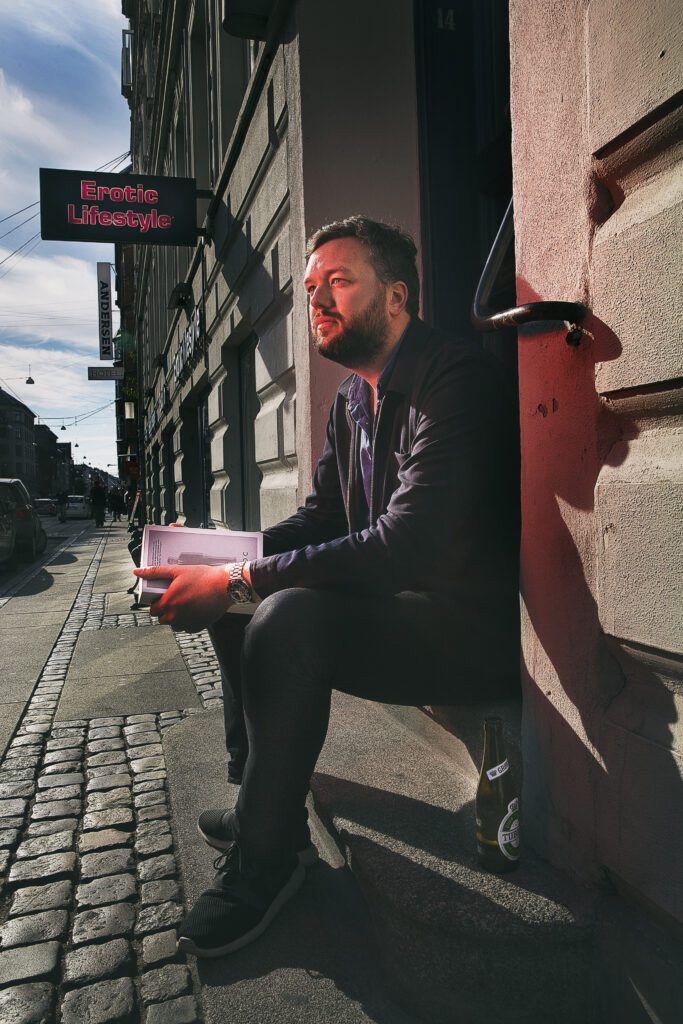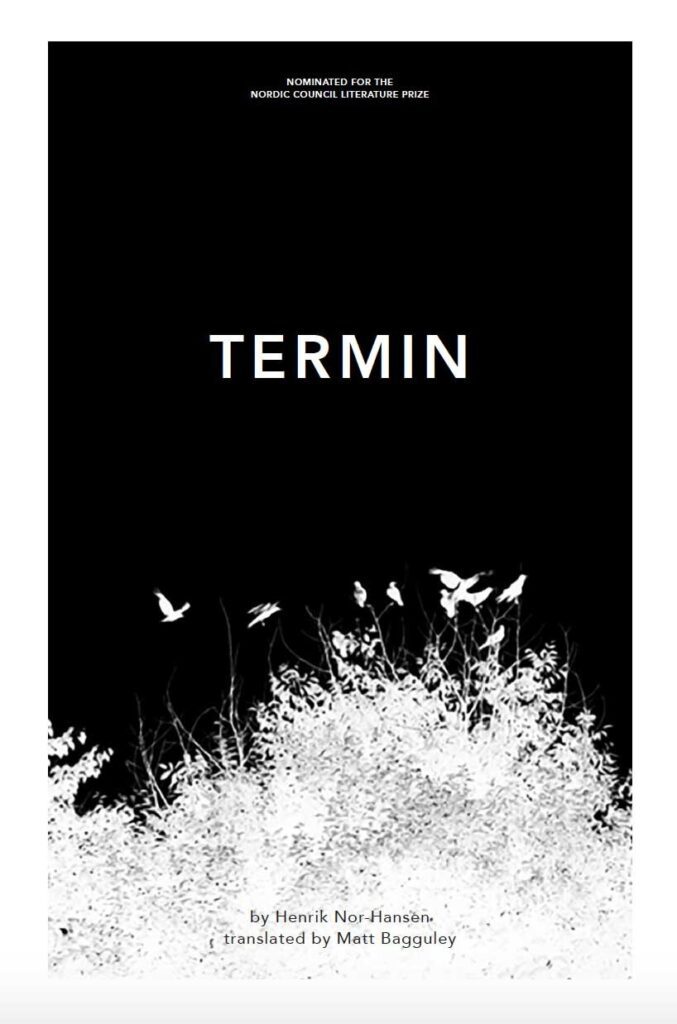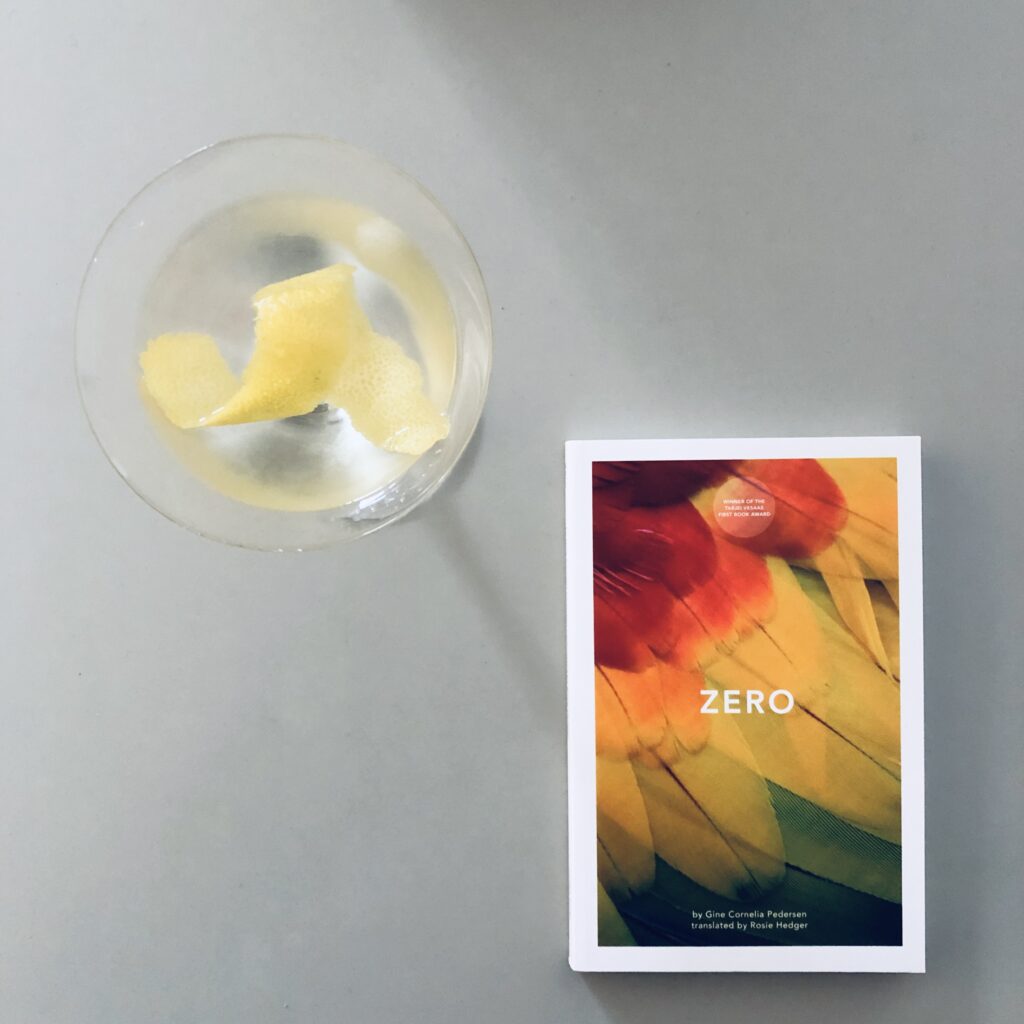Founded in 2016 by an English banker and based in a cottage in Kent, Nordisk Books is perhaps an unlikely source of daring contemporary Norwegian literature. But in the four years since Duncan Lewis set up his publishing company – in his spare time, from his home in Whitstable – he has proved that the challenging fringes of the Nordic imagination can be fertile ground for British readers.
While Lewis has, to date, also published works by Swedish and Danish authors, nearly half of his books have been Norwegian. These include Termin by Henrik Nor Hansen, which examines the darker side of Norwegian society, and Zero by the actress Gine Cornelia Pedersen (star of the Channel 4 drama Young and Promising) which won the prestigious Tarjei Vesaas First Book Award. Its most recent Norwegian title is Kenneth Moe’s Restless, a short novel that explores loneliness in what Karl Ove Knausgaard describes as “a completely original literary voice”. As Nordisk Books prepares to celebrate Women in Translation Month, Norwegian Arts talked to Lewis about the merits of Scandinavian writing and the challenges of setting up a publishing company of one.
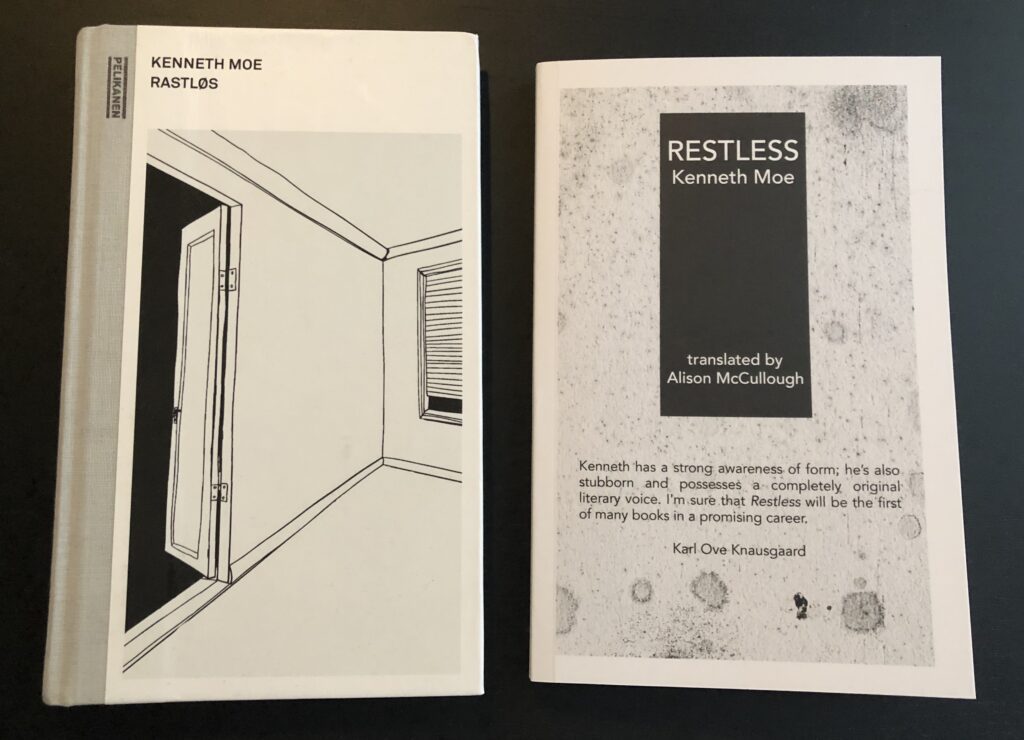
Editions of Kenneth Moe’s Restless published by Karl Ove Knausgaard’s Pelikanen and Duncan Lewis’s Nordisk Books (Photo: Nordisk Books)
Can you tell us a little about your background / how did you become interest in the Nordic region and literature?
I grew up in the UK, but moved to Denmark – via Paris – when I was 22 and spent six years living there. This reinforced a fascination with the Nordic countries that had begun with a TV show about Icelandic monster truck racing, combined with local folklore, that I have a vague memory of from my childhood. Having moved back to the UK in 2014, I retained connections to the region and still try to visit friends, especially in Denmark but also in Norway, Finland and Iceland when possible.
I created Nordisk Books in 2016 – as a side project to my day job working for a bank – out of a curiosity to see if I could turn my passions for both literature and travelling in the region into something more, but also out of a frustration at so few books from the Nordic countries being published in English that did not fit into the ‘noir’ category. I hoped then and continue to hope that, in its modest way, Nordisk Books can contribute to bringing more creative and experimental fiction to English-reading audiences.
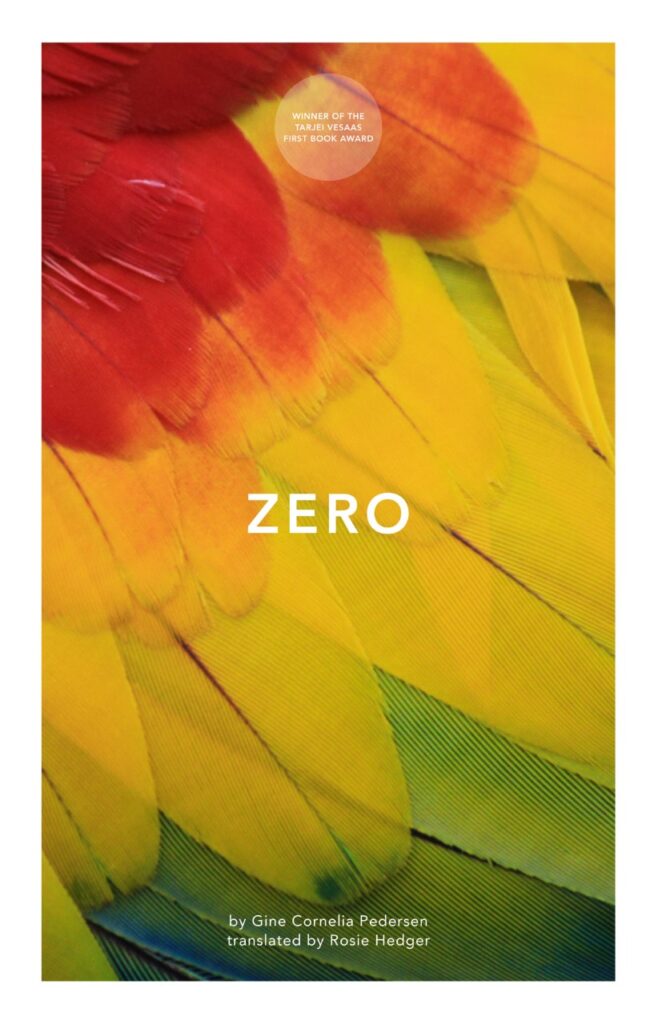
Zero by Gine Cornelia Pedersen (translated by translated by Rosie Hedger; published by Nordisk Books)
What challenges and surprises did you encounter in founding Nordisk Books?
It was a bit of a surprise discovering how little interest there is from most of the large publishers in putting out some of these brilliant authors; translated fiction really seems to be, with a few exceptions, the preserve of the indies. And that’s obviously great because there is generally a different level of care and higher production values with the indie publishers. But as a start-up I certainly didn’t expect to have pretty much my pick of which books for us to publish.
As for challenges, getting to the level where we are selling thousands rather than hundreds of copies of every book is the main one and that’s where I’m focused. Thinking about what more we can be doing to get the word out there about Nordisk Books and our authors, via social media, our readers or other channels. It’s of course difficult, because you’re competing with so many other fabulous presses and books. In a way, the COVID crisis has helped us – we have now really increased our direct sales via nordiskbooks.com, and have been a founding member of the Borderless Book Club which has brought us a lot of new supporters.
What do you look for in new titles – and how do you find them?
Anything that excites me as a reader. I’m really proud of the number of debut authors we have published, whether that be young prize winners like Kenneth Moe, or hugely respected academics writing their first novel, as in the case of Ebba Witt-Brattström [author of the fragmented novel Love/War]. I generally find the titles through recommendations from publishers in the Scandinavian countries, although some have also just come from things that I’ve come across in book shops while visiting the region. This is also why – so far – the output has been limited to translations from Danish, Norwegian and Swedish, as I am not able to read Icelandic, or Faroese. I do hope to be able to expand into these other languages, it’s a work in progress.
Your Norwegian titles have non-traditional narratives – do you think there is a literary tradition in Norway for experimentation?
I’m not sure what I would say is specific to Norway, although there are certain writers who have had a huge impact on the literary world – Ibsen, of course and more recently Karl Ove Knausgård. But there does seem to be a real love of literature in Norway – maybe there has to be when a paperback can cost the equivalent of £30 – and I’m constantly impressed by the standard of writing produced by young authors working there today. There are always books that I have in mind that I would love Nordisk to publish, it’s just a matter of resources for such a small press.
Nordisk titles have dealt with isolation, violence and mental health. As a publisher, what draws you to difficult themes?
My personal view would be that literature has always had similar themes as the source of its drama. I think a book about a family going on a summer holiday where everything goes as planned and then they come home would be a much more difficult read than one that is constantly close to erupting from the tension that drives it along. There are, of course, elements that are distressing, but I think that is a sign of bold, unafraid writing and it is something that our readers seem to appreciate.
Several of the Nordisk titles are novellas – why do you think the shorter form is having a renaissance?
It’s a good question. Perhaps these things just come and go in waves. I think with our titles, there is a certain amount of business pragmatism; we are a very small press, for the books that I haven’t translated we have to pay translators and it’s cheaper to translate a short book than a long book. But I think also when it comes to authors who take risks with language and form and who like to experiment, this often lends itself to succinct prose rather than paving-slab type epics. There are of course exceptions.
Of your Norwegian titles do you have a particular favourite and why?
Oh that’s mean! They’re all very different, so they give me different things as a reader, and as a publisher. I have a real soft spot for Zero (by Gine Cornelia Pedersen, translated by Rosie Hedger) because the voice of that book is just so fantastic and I love the design. But it’s been interesting seeing the reaction to our most recent Norwegian title, Restless (by Kenneth Moe, translated by Alison McCullough). Participants to the online book club where we discussed this really struggled with the protagonist, but more recent reviewers have been a lot more open to the nuance that I think is in there. And both translations are exceptional, which is something I’m proud of as a publisher.
For more information visit Nordisk Books
To celebrate Women In Translation month this August, Nordisk Books are offering a bundle of all four of its titles written by women at a discounted price
Top photo: Duncan Lewis (Photo: Carsten Bundgaard)


